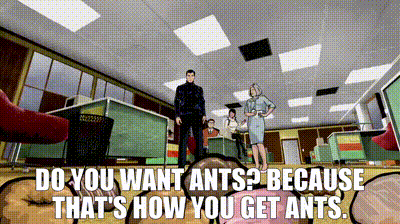
Posted on 09/19/2022 2:13:28 PM PDT by LibWhacker
How many stars are there in our galaxy? How many grains of sand in the Sahara? How many ants live on Earth? These are all questions that seem impossible to answer. However, through intensive and extensive data analysis, science is coming amazingly close to finding the solutions. When it comes to ants, a team led by Würzburg biologists Sabine Nooten and Patrick Schultheiss has done just that.
Schultheiss has been conducting research at the Chair of Behavioral Biology and Sociobiology at Julius Maximilians University (JMU) since 2022. He was drawn to Würzburg from the University of Hong Kong. The publication entitled "The Abundance, Biomass, and Distribution of Ants on Earth," now published in Proceedings of the National Academy of Sciences (PNAS), was produced in cooperation with Julius-Maximilians-Universität Würzburg.
'A 20 with 15 zeros'
But how many ants are there? Sabine Nooten, also lead author and recently relocated from Hong Kong to Würzburg, clarifies, "According to our estimates, the global ant population is 20 x 10 to the power of 15—that is, 20 quadrillion animals. That is a 20 with 15 zeros, which is hard to grasp and appreciate."
It becomes clearer when you calculate the biomass of the animals. This amounts to 12 megatons of carbon. "That exceeds the combined biomass of wild birds and mammals and corresponds to about 20 percent of humanity's biomass," Patrick Schultheiss explains.
In order to calculate the number of ants, the team reviewed a wide variety of existing studies on the insects, ultimately evaluated about 500 suitable papers, and combined them in a database.
Distribution varies greatly
It was known that ants inhabit almost all habitats, except for the polar regions. The study was the first to empirically investigate how they are distributed there. It turned out that the tropics have the highest ant density. Besides the climate zone, local ecosystems also play an important role. Forests and arid regions are home to the most specimens, whereas they are much rarer in areas heavily influenced by humans.
Future studies should focus on which environmental influences specifically affect the distribution of the ants and to what extent this will change, especially as a result of climate change.
Important role in the ecosystem
Why the number and distribution of these animals is so important in the first place is shown by an example cited in the study: "Per hectare, ants move up to 13 tons of soil mass per year," reports Patrick Schultheiss, "so they have a great influence on maintaining the nutrient cycle and also play a decisive role in the distribution of plant seeds."
Sometimes, however, the insects' influence is also negative. Invasive species, for example fire ants, can have a negative impact on local biodiversity and cause considerable damage.
Ever try Termidor SC (Fipronil)? Twice a year and the little buggers are gone!
This amounts to 12 megatons of carbon. “That exceeds the combined biomass of wild birds and mammals and corresponds to about 20 percent of humanity’s biomass,” Patrick Schultheiss explains.
—
They expel CO2. They need to be exterminated to save the planet.
There are several corpses in D.C. that aren't decomposing fast enough......
Here’s a visual:
First imagine a container that holds a quadrillion ants. Now imagine 20 of those containers.
That’s exactly what 20 quadrillion ants would look like.
(Hat tip to Norm McDonald who explained that the deficit could only be grasped by picturing 3 one-trillion dollar bills...)
Hold on...
One fewer.
What about those Gi Ants?
“Meh!”
So noachian.
“I want to know if the earth increases/decreases in weight.”
Perhaps you mean mass?
Why cant you guys be a little bit more like fhayek?? :P
Don’t these people have anything better to do?
I used to have two anthills in my front yard.
Damn that’s funny.
A quadrillion here, a quadrillion there, pretty soon you’re talking real numbers…🤪
We’ll have to burn ants to keep warm this winter.
Red or black ants?
The same two from Noah’s ark maybe?

There’s going to be a boatload less after I pour ant poison on the two huge ant hills at our rural compound this week. 😏
Disclaimer: Opinions posted on Free Republic are those of the individual posters and do not necessarily represent the opinion of Free Republic or its management. All materials posted herein are protected by copyright law and the exemption for fair use of copyrighted works.